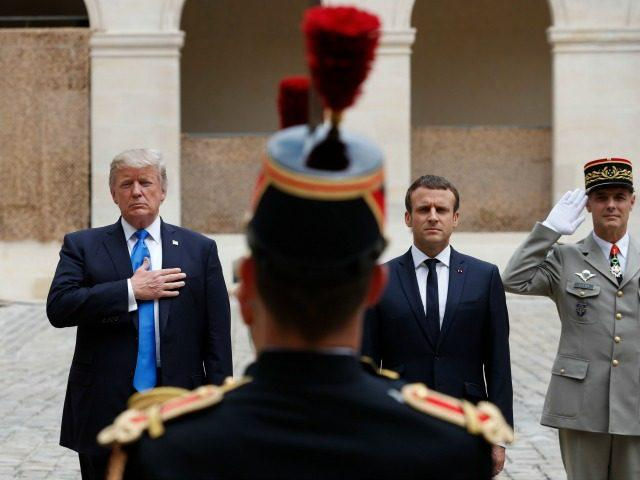A European Call to Arms
- Nov 23, 2018
- 3 min read

On November 11th, 60 world leaders gathered in Paris to mark the 100th anniversary of the end of World War I. French President Manuel Macron hosted the event and hoped to bring leaders together to discuss issues of nationalism and potential conflict at the Paris Peace Forum. Mr. Macron’s views were met with stiff opposition from President Trump, who is skeptical of the French president’s vocal support for globalism and the European Union. Their policies clashed upon on the idea of a Pan-European Army, which both Macron and Angela Merkel support but Trump disagrees with.
Merkel laid out that “the times when we could rely on others are over. This means we Europeans have to take our fate fully into our own hands,” as well as stating her believe that, “we should work on a vision of one day establishing a real European army.” With these remarks she is supporting similar statements made by French President Macron, who argued that in light of uncertainties regarding the EU-USA relationship and other potential external threats -like Russia- a further European military integration is necessary.
“We will not protect the Europeans unless we decide to have a true European army,” the French President reasoned. In detail, he is pointing out Trump’s demand for European NATO members to increase their defense expenditures and the announcement to withdraw from the Intermediate-range Nuclear Forces Treaty by the U.S.
The two neighboring leaders are in line with another EU heavyweight, European Commission president Jean-Claude Juncker, who already voiced his opinion last year that European States need to increase their efforts in the defense sector and that they should no longer rely too much on NATO.
However, not everybody is equally happy with these declarations and there are many outspoken critics of such a move by the EU. First and foremost, Mr. Trump seems to have been infuriated by the comments of Mr. Macron and said that the proposal for such EU army, whose goal would be to protect the member states against any possible threat, even from the USA, is “very insulting”.
Sticking to his habits, Mr. Trump took the issue to Twitter and made fun of Macron’s popularity ratings, France’s role in the two World Wars and letting his French counterpart know that he should “Pay for NATO or not!”.
Furthermore, there were multiple MEPs in the European Parliament that voiced their discontent about the plan to create a European military. Eurosceptics like British politicians Nigel Farage and David Campbell Bannerman made clear that they don’t support this idea, portraying it as a furthering of “European Federalism” and the manifestation of a superstate. Mr. Farage even went further calling the EU “an empire, a militarized European Union”.
They are joined by likeminded politicians from other member states such as polish MEP Ryszard Legutko, who claimed that “the EU has been hijacked by the left,” arguing that Merkel is dangerously close in her statements to the socialist German politician and former Parliament president Martin Schulz.
Whether or not a fully integrated European army will become reality or not remains to be seen, but it is evident that the EU is already taking steps to improve its cooperation on security issues. An example of this can be found in the Permanent Structured Cooperation (PESCO). As part of the EU’s security and defense policy, it counts with 25 out of the total 28 EU members, excluding only Denmark, Malta and the UK -which is set to leave the EU in 2019 anyway.
PESCO is mainly aimed at harmonizing cooperation among members and to bring their defense sectors in line regarding equipment, logistics, training and interoperability. Nevertheless, it is far away from what Mr. Macron and Mrs. Merkel envision when they talk about a European army. Still, Mr. Trump shouldn’t be too angry about this push, as a stronger Europe means also a stronger ally under the NATO umbrella, something that he has been demanding for some time now. Furthermore, a Europe that is not only an economic heavyweight on the world stage but that also has the capabilities protect its members militarily is something worth considering.




Comments